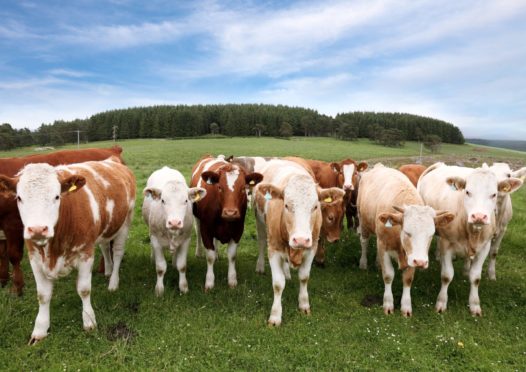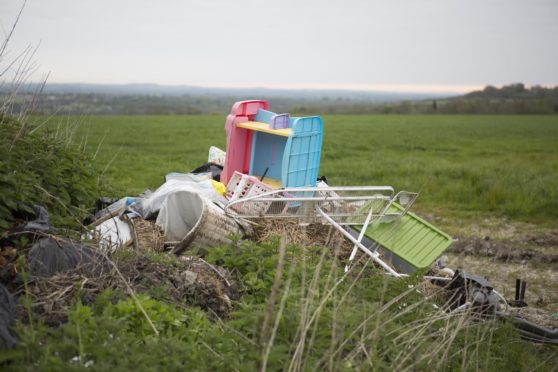Farmers and crofters are being urged to remain vigilant for sources of lead on their land following a spike in incidents of lead poisoning in livestock last year.
Food Standards Scotland (FSS) says the number of lead poisoning incidents reported to the organisation in 2020 was more than those reported in 2018 and 2019 combined.
It said there were 10 reported incidents of poisoning on Scottish farms last year resulting in the death of 18 cattle and the temporary restriction of 318 animals – this compares to four incidents in 2018 and three in 2019 which when combined resulted in the death of 10 cattle and restrictions on 158 animals.
FSS said lead poisoning mainly affects cattle and sheep, with young cattle most at risk due to their curious nature. It can cause nervous disease, blindness, infertility, and in some cases death.
The agency said the main sources of lead on farms and crofts are electronic batteries, flaking lead paint and bonfire ash, with fly-tipping blamed for the recent rise incidents.
Angus farmer Steven Barron, who lost eight cattle over a short period of time to lead poisoning last year, has urged his peers to take heed of the warning from FSS.
“Two batteries were found in the field which had been dumped by fly-tippers,” said Mr Barron from Barron Findowrie Ltd, near Brechin.
“The animals affected suffered greatly with symptoms including grinding teeth, bobbing head, frothing at mouth, muscle tremors and some collapsed as their calves tried to feed.”
He added: “Some animals were still feeling the effects of the poisoning weeks after with one cow unable to feed its calf and concerns about its fertility.”
Ron McNaughton, who heads up the food crime and incidents unit at FSS, said the organisation had received no reports of illness as a result of on-farm lead poisoning, however lead contamination found beyond legal limits in meat, offal, or milk had the potential to put consumers at risk.
He said: “To minimise the risk of lead contamination we are asking farmers across the country to check fields and barns regularly for sources of lead such as old batteries and machinery, and also watch out for fly-tipping.
“If you suspect lead exposure, remove the source immediately, stop livestock access and seek veterinary advice.”
Scotland’s chief veterinary officer, Sheila Voas, backed Mr McNaughton’s plea and said: “As we approach turnout time I would urge all farmers to check their fields carefully, including for possible sources of lead, and to remove them before turnout.
“I would also like to remind members of the public that fly-tipping can have devastating consequences on animal health as perhaps those responsible haven’t considered that aspect of it when choosing to dump rubbish.”


